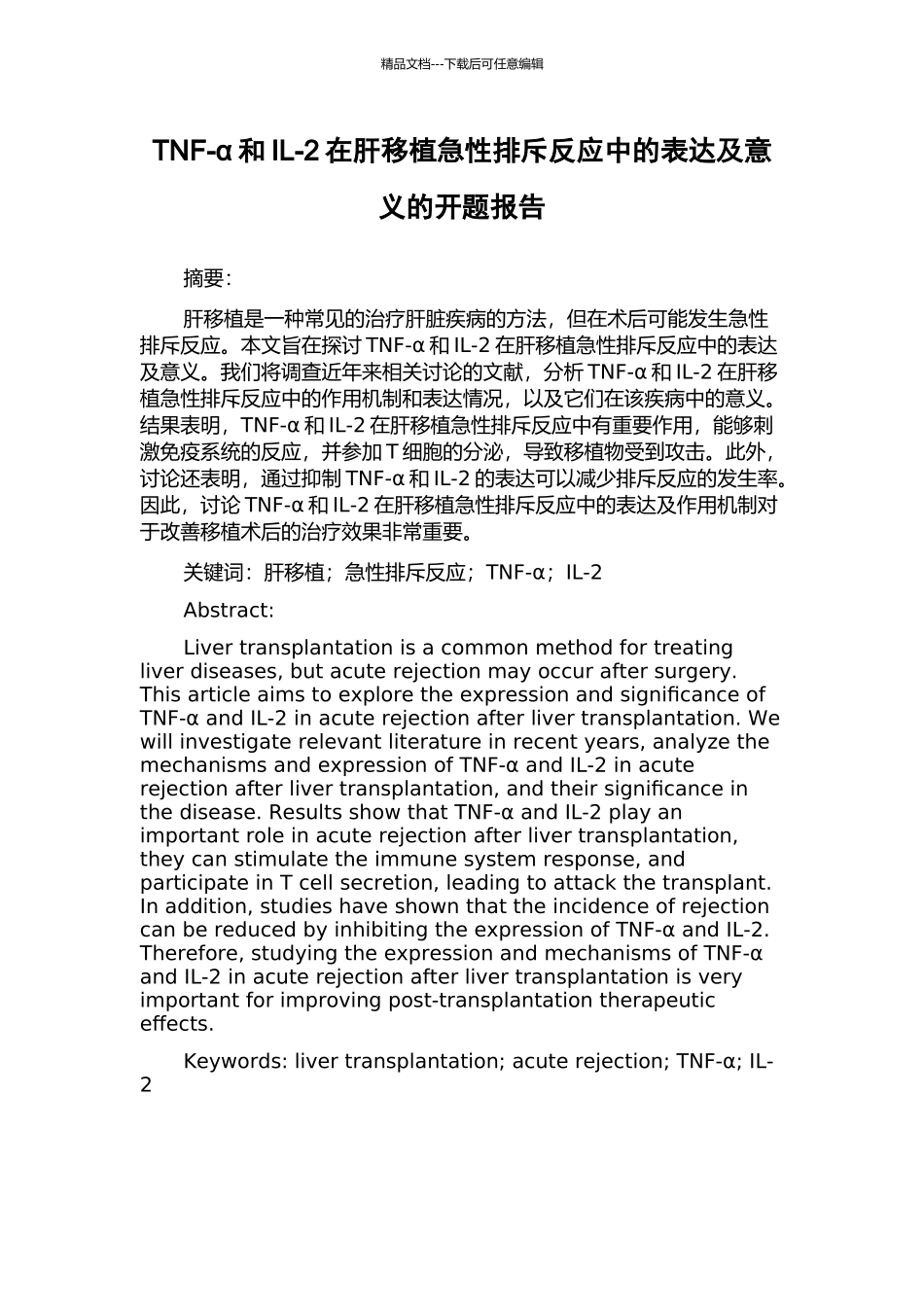精品文档---下载后可任意编辑TNF-α 和 IL-2 在肝移植急性排斥反应中的表达及意义的开题报告摘要:肝移植是一种常见的治疗肝脏疾病的方法,但在术后可能发生急性排斥反应。本文旨在探讨 TNF-α 和 IL-2 在肝移植急性排斥反应中的表达及意义。我们将调查近年来相关讨论的文献,分析 TNF-α 和 IL-2 在肝移植急性排斥反应中的作用机制和表达情况,以及它们在该疾病中的意义。结果表明,TNF-α 和 IL-2 在肝移植急性排斥反应中有重要作用,能够刺激免疫系统的反应,并参加 T 细胞的分泌,导致移植物受到攻击。此外,讨论还表明,通过抑制 TNF-α 和 IL-2 的表达可以减少排斥反应的发生率。因此,讨论 TNF-α 和 IL-2 在肝移植急性排斥反应中的表达及作用机制对于改善移植术后的治疗效果非常重要。关键词:肝移植;急性排斥反应;TNF-α;IL-2Abstract:Liver transplantation is a common method for treating liver diseases, but acute rejection may occur after surgery. This article aims to explore the expression and significance of TNF-α and IL-2 in acute rejection after liver transplantation. We will investigate relevant literature in recent years, analyze the mechanisms and expression of TNF-α and IL-2 in acute rejection after liver transplantation, and their significance in the disease. Results show that TNF-α and IL-2 play an important role in acute rejection after liver transplantation, they can stimulate the immune system response, and participate in T cell secretion, leading to attack the transplant. In addition, studies have shown that the incidence of rejection can be reduced by inhibiting the expression of TNF-α and IL-2. Therefore, studying the expression and mechanisms of TNF-α and IL-2 in acute rejection after liver transplantation is very important for improving post-transplantation therapeutic effects.Keywords: liver transplantation; acute rejection; TNF-α; IL-2
